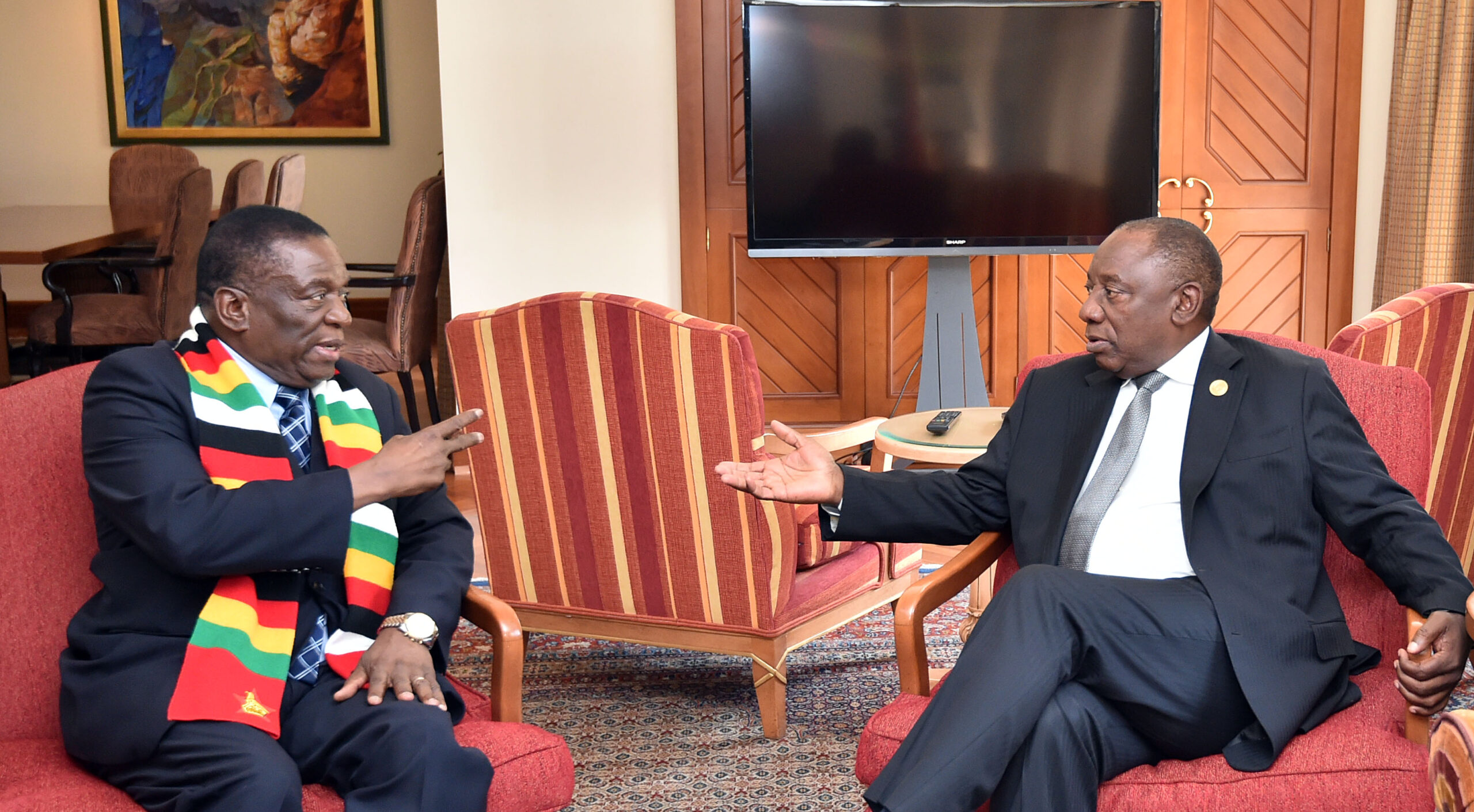
Opinion
South Africa should balance rule of law and social justice
Published
5 years agoon
By
NewsHawksA MOTHER jumps onto the lower deck of a tall building and catches her baby dropped from a floor above. She frantically dashes to the edge of the deck. A crowd has gathered on the ground below. A group of strangers has formed a human net and they are calling for her to throw the baby into their arms.
She instinctively drops her baby into the human net waiting below. The baby lands neatly into the human net. The little one is safe. Moments later, mother and child are reunited.
But there is another woman on the deck, her foot dangling from her leg. It is broken somewhere near the ankle. It is a painful sight. The picture of the baby flying into the safety of the human net, arms and legs astride, is both sweet and sour.
Sour because of the violence and arson that forced the flight. This was not a game. It was a great escape from a near-death moment. It could easily have ended in disaster.
Sweet because in that moment of great adversity was evidence of courage and the beauty of the human spirit of co-operation – a mother’s love and strangers getting together to serve others because it is the right thing to do. That image of the baby caught in full flight from extreme danger must qualify among the most iconic images of the most riotous and destructive moment in post-independent South Africa.
A giant in distress
The giant of the southern African region is in serious distress. There has never been a more trying moment for South Africa since it gained freedom from the hideously oppressive apartheid regime in 1994.
The upheaval started in KwaZulu-Natal following the jailing of Jacob Zuma, a former president of South Africa for contempt of court. The Constitutional Court held that he was in contempt of court and sentenced him to 15 months’ imprisonment.
The stiff and unprecedented sentence sent shockwaves across the country and beyond its borders. Jailing a former president is not a regular occurrence anywhere in the world, let alone in Africa where the Big Man syndrome is commonplace.
Was Zuma really going to jail? Many were shocked by the chutzpah that South Africa’s apex court had demonstrated. If South Africa prides itself as a democracy with strong institutions, the Constitutional Court is one of the key cogs in that wheel.
It has built a cutting-edge and world-class jurisprudence over the years, a reputation made more impressive when compared to its regional peers.
Back in the early 2000s, it was the Constitutional Court’s wisdom that rescued the nation from the scourge of the HIV and Aids pandemic when it curtailed the folly of a government that had lost its way through inexplicable denialism.
But its critics thought it had gone too far on this occasion. They thought it had exercised its powers with more than a little zeal, a charge that has escalated in light of the chaos that erupted in its aftermath.
Would Zuma really go to jail? That was the big question after the ground-breaking decision. The court had given him five days to comply. Zuma typically put up a show of defiance egged on by his supporters.
But in the end, as the clock ticked towards the end of the moratorium, he conceded and presented himself at a prison. The seemingly impossible had become a reality. Zuma was going to jail. With hindsight, the veteran politician might have benefited from better counsel.
Defying and mocking the court was never a good idea. Still, his supporters were not happy. They rallied around him in the days after the sentencing vowing to defend him by any means necessary. In their opinion, he would never go to jail. In the end, they could not do anything to stop the incarceration.
But they were not done. Images of their leader signing in at the prison were leaked on social media. Looking powerless and forlorn as the prison staff inducted him into his new home for the next 15 months, it was a sad picture of humiliation and pity. The mighty had fallen. Those images must have lit up an already incendiary atmosphere among his supporters.
How could they do that to Msholozi, they must have wondered. And so it was that the protests began in earnest, calling for Zuma to be released. The protests soon turned into an orgy of looting and destruction, first in the volatile KwaZulu-Natal province before the contagion spread to Gauteng, home of South Africa’s largest metropolis. But if the pacesetters were Zuma’s ardent posse of supporters, others smelt a whiff of opportunity.
It was their turn to eat. It turned into a fiesta of violence and looting as hordes of marauders ransacked and pillaged shopping malls and other commercial establishments.
Rule of law to lawlessness
There is, of course, some irony in all this. It is that what began as a defence of the rule of law by the apex court yielded a spree of lawlessness, destruction and death. At the time of writing, the death toll stands at more than 200 people, and damage estimated at more than a billion dollars. Businesses of all types have been looted or razed to the ground.
The economies in the affected regions have run aground with credible fears that some businesses might never recover. They were already reeling from the national lockdowns courtesy of the Covid-19 pandemic and, for some of them, the plunder and destruction will prove to be the final nail on the coffin. In a country where the official unemployment rate among the youth (15-34 years) is 46.3% and the national average is 32.6%, thousands will be out of work following the destructive riots. Already, thousands are queuing for assistance, not because of a natural disaster but a human-made calamity.
With major oil companies closing business and declaring force majeure (act of God), a justification for not fulfilling contractual obligations, the repercussions will be felt in other parts of South Africa and the southern African region.
With KZN being host to one of the busiest ports in Africa, a key arterial route for trade is currently blocked. This is certain to cause severe distress to the heart of the nation and the region.
The economic impact of South Africa in the region cannot be overstated and one cannot avoid the cliché that if the giant sneezes, the whole region catches a cold. This is the reason why South Africa’s troubles should worry the rest of the region. It is already home to millions of migrants from the region, most of them economic refugees fleeing unemployment and poverty in their own countries. They, in turn, send millions in remittances every year providing a lifeline to their impoverished communities and national economies.
SA’s Sarajevo moment
So, what has gone wrong in South Africa? How did the much-celebrated rule of law turn into a rule of lawlessness? The temptation is to reduce the cause to the actions of one stubborn man who believed he was bigger than the law.
To my mind, that would be too simplistic an approach to what is a complex and nuanced problem. It is often said South Africa suffers a false sense of exceptionalism, the notion that it is different from the rest of Africa. But a careful examination suggests that its challenges are not new to post-colonial societies and if there is a grave error it is that the South African leadership has not done enough to draw lessons from its peers that have travelled the path before.
To be sure, the rioting was triggered by the jailing of Zuma, but that was merely a Sarajevo moment for South Africa.
It was the spark that lit a fully loaded powder-keg that was already in existence. Metaphorically speaking, South Africa has long been a volcano that was waiting to erupt although no one knew quite when it would happen. It is to those deeper causes that South Africa must look at this moment, instead of focusing on the actions of Zuma and his supporters.
For so long, the world has held South Africa as a gold standard for the African region, a model to be emulated by others. When the clique of the richest countries in the world meets to decide the course of world affairs, South Africa is invited to sit at the table aiding and abetting the sense of exceptionalism. Its constitution is widely celebrated as progressive.
The West casts it as a kind of watchdog that must rein in the delinquents around it like Zimbabwe. But that is a role that, aware of its insecurities and structural weaknesses, South Africa has largely been reluctant to exercise. Contrary to Western perceptions, and despite efforts to paint it as a Big Brother, South Africa is not different from its African peers in terms of challenges that a post-colonial state faces.
It might lay claim to being the most sophisticated economy on the continent, but this hides the sad reality that a significant part of it is in a few hands, the beneficiaries of historical advantage and few black elites who managed to sneak to the top table.
However, it is not immune to the challenge that has afflicted most post-colonial states. They have struggled, and many have failed, to strike a balance between two competing demands: on the one hand trying hard to live up to claims of modernity as defined by the dominant Western discourse and, on the other hand, having to meet the needs and expectations of a historically disempowered, disadvantaged, and long-suffering majority. Few areas mark this tension than the celebrated principle of the rule of law which features prominently in the events leading up to the current riots. It is to that issue that I now turn.
Rule of law complexities
The Zuma case and the rioting that erupted in the wake of his jailing is a great point to discuss the complexities of the rule of law in a post-colonial setting; what it means and how governments have wrestled with it. When the Constitutional Court convicted and sentenced Zuma to a term of imprisonment, the decision was hailed as an important defence of the rule of law.
The former president had defied the commission of inquiry investigating allegations of state capture. He had also defied the Constitutional Court after it ordered him to comply with the commission’s demands. Zuma did not even bother to formally respond to the application for contempt. Instead, he wrote incendiary public statements which impugned and denigrated the court.
In defying the judicial process, Zuma’s conduct was reminiscent of a medieval king who regarded himself as being above the law. His behaviour was not what would be expected in a constitutional democracy, one that he had defended when he was president.
It was a challenge to the authority of the highest court in the country. If the Constitutional Court had succumbed to his whims, it would have looked lame, and its authority would have been severely undermined. The court had bent over backward to accommodate Zuma’s stubborn antics before the verdict and sentence were passed. But Zuma ignored it, choosing instead to pay to the public gallery.
I do not think anyone can seriously argue that Zuma was not contemptuous of the court. The dispute is over the sentencing, with his supporters believing that he ought to have been given a suspended sentence as is the norm, which would have given him an incentive to comply.
For his supporters, the 15-month unsuspended sentence was excessive, harsh, and vindictive on the part of the judges. They argue that the sentence reflects the judges’ emotional and vindictive reaction to Zuma’s conduct. They see it as a disproportionate measure in the circumstances.
Those who back the court argue that the decision was consistent with the substantive rule of law which supports the democratic system of government.
This in part reflects the contested nature of the concept and application of the rule of law. The outcome of the case is that what began as a defence of the rule of law has become the rule of lawlessness. This is a reflection, in my view, of the tension between a substantive conception of the rule of law and the long-unresolved legacy of social inequality and injustice.
Therefore, while elite classes extol the virtues of the substantive rule of law under which their advantages are protected, it sadly means less to the poor majority for whom the human-made legacy of historical injustices and inequality are ever-present realities. A man in opulent Sandton has the wealth to protect and the rule of law provides that protection. His neighbour for whom a hovel in poverty-stricken Alexandra is home has nothing and the rule of law is an alien phenomenon.
Meaningful rule of law
This brings us to the issue of conceptions of the rule of law in a post-colonial context. How is it that what is supposed to be a supreme example of upholding the rule of law has instead resulted in the rule of chaos and destruction? In my view, while the rule of law is fundamental, it is also important to recognise that it is neither an end nor the sole virtue of a legal system.
This applies generally but takes an even more significant prominence in post-colonial societies that are defined by structural injustices and inequalities.
As I have already stated, the post-colonial state must satisfy at least two demands: first, to uphold and defend the rule of law, and second, to correct historical injustices and inequalities. In other words, the legal system of a post-colonial state must not only revel in upholding the rule of law, but it must also attend to the demands of the systematically excluded and impoverished.
The problem is that these two virtues of a legal system do not always sit comfortably in the same space because meeting the demands of social justice might upset the substantive rule of law, while an insistence on upholding the substantive rule of law might limit access to social justice.
Seen from this perspective, there is an argument to be made for a critical assessment of the substantive rule of law so that it may be reconceptualised and redesigned in a post-colonial context. As I have already stated, South Africa is not the first country to encounter this challenge and I will use its northern neighbour, Zimbabwe, as an illustration.
Case of Zimbabwe
Zimbabwe won Independence in 1980 while South Africa celebrated freedom in 1994. Both the newly independent countries adopted new constitutions that were regarded as progressive and for present purposes, adopted and extolled the virtues of the rule of law.
South Africa’s new constitution was more explicit in its reference to the rule of law. It specifically stated the rule of law as one of the founding values of the state. The new Zimbabwean constitution which was adopted in 2013 also refers to the rule of law as one of the founding values and principles of the state. However, neither constitution specifically defines the rule of law. There is no statement over the conception of the rule of law.
However, going by the terms of the constitutions and judicial decisions, it is evident that they accepted and advanced the substantive conception of the rule of law. The problem is that the post-colonial constitutions and judiciaries adopted a substantive conception of the rule of law to protect a status quo that was founded on the enforcement of a formal conception of the rule of law.
By maintaining the status quo, the legal systems helped to perpetuate injustices and inequalities of the colonial era instead of facilitating redress. This is unsustainable because it leaves a vast reservoir of discontentment which slowly builds up over time, ultimately threatening the substantive rule of law.
In the case of Zimbabwe, it ended in violence and an abrogation of the substantive rule of law, all in the name of redressing historical injustices and inequalities. Let us take a dispassionate glimpse of Zimbabwe and property rights because it holds lessons for the southern neighbour.
Zimbabwe’s independence constitution had a clause that entrenched the right to private property for the first 10 years of independence. The provision which protected property rights could not be amended by the new government for that first decade. A review of the independence negotiations held at Lancaster House in London reveals that the nationalists accepted this arrangement with great reluctance.
They wanted to have powers to address the land question soon after independence. However, Britain and the Rhodesian government wanted to protect the interests of white landowners who held the bulk of arable land. The outcome was a constitution that facilitated political power to the black majority while maintaining economic power in the white minority.
Indeed, the new Zimbabwe’s adherence to this arrangement was hailed as consistent with the rule of law. But it was also a systemically unjust and inequitable system for the black majority that had been unfairly dispossessed, discriminated against, and exploited during the colonial era.
The rule of law which protected this system was great for the land-owning elites, but it was alien to the black majority. The reservoir of disgruntlement continued to build up and it is hardly surprising that when the Zanu PF government felt political pressure and faced an existential threat, it was only too happy to allow it to burst at the seams.
The land expropriations were illegal and regarded as a breach of the rule of law, but for the government and its supporters, it was a legitimate exercise to address a long-standing legacy of colonialism. Thousands invaded the farms and took occupation with the connivance and encouragement of the government but very few came out to defend the white landowners.
The Zimbabwean government reconfigured the composition of the Supreme Court and the High Court to create a judiciary that would support its land reform agenda. It believed that the old judiciary was institutionally biased against land reform.
But the judges argued that they were performing their constitutional mandate, which was to interpret and apply the laws on the statute books. In their view, when they ruled against the expropriation of land without compensation, they were simply giving effect to the constitution and promoting the rule of law. The judges were right at law. But in the eyes of the government, the judges were standing in the way of efforts to correct historical imbalances under the guise of the rule of law.
This was a classic case of two competing claims: the claim of the substantive rule of law, which required the strict protection of property rights, and the second was the claim of social justice, which required the correction of historical injustices and inequality.
The substantive rule of law lost the contest. Still, to illustrate the complexities of the rule of law, the government continued to claim that it was enforcing the rule of law even as it passed retrospective laws that violated fundamental rights.
This was at best a formal conception of the rule of law but adherents would still justify the measures as meeting the other virtues of a legal system, namely redressing past injustices and inequality.
Why it matters to SA
I have gone to some lengths to examine the tumultuous path of the rule of law in Zimbabwe because I believe it is relevant to South Africa’s situation.
Like its northern neighbour in its early years, while South Africa extols the virtues of the rule of law as epitomised by the Constitutional Court’s reasoning in the Zuma case, and its determination to jail a former president, it is also a country that carries a heavy burden of unresolved historical grievances.
As with Zimbabwe in the early years, the rule of law in respect of property rights served the interests of elites (both white and black) but did not have much relevance to the majority who remained encumbered by the legacy of injustice and inequality.
From an economic perspective, those who extolled the virtues of the rule of law never considered if it meant the same thing or anything at all to the poor majority. Also, like Zimbabwe in the early years, South Africa has long had simmering tensions between classes usually defined by race. The compromises reached at independence did not resolve long-standing grievances.
They postponed problems and created an incendiary situation which as Zimbabwe showed is unsustainable in the long run. Political demagogues were always going to take advantage of the tensions when they suited their interests. South Africa faces a similar path if it is not careful.
Façade of rainbowism
For too long South Africa has laboured under the false veneer of the “Rainbow Nation”. Labels like that are not accidental. They create an imagined reality but imagined realities do not last unless they are persuasive enough to be believed.
It was seductive but the notion of a Rainbow Nation simply glossed over the gross inequalities that needed to be resolved and which if unresolved present a potent recipe for chaos. It only needs a spark.
The northern neighbour, Zimbabwe, had its labels too in the early years. For example, it was called the Bread Basket of the region, another seductive label that glossed over the gross inequalities in land ownership.
There is even a claim that the early years were the golden era of the rule of law, even as the Mugabe regime was massacring at least 20 000 people in Matabeleland and the Midlands during Gukurahundi.
The spark came in February 2000 when Zanu PF lost the constitutional referendum and realised it was facing an existential threat. The floodgates to populism opened with the farm invasions riding on the rhetoric of redressing historical imbalances.
For South Africa this past week, the spark was the jailing of a former liberation icon who has fallen from grace. President Cyril Ramaphosa says the violence was well-planned and that there we instigators behind it. Some people thought the land invasions in Zimbabwe were spontaneous. On the contrary, the government always had a hand in them.
For the young lad who had managed to pick a few clothes and underwear as his loot in South Africa, this was hardly about Zuma but an opportunity to make some pickings in a period of manufactured chaos. The point is, underneath the carefully and self-servingly manufactured façade of rainbowism, there are severe tensions in South African society that are always threatening to explode. There is a huge reservoir of disgruntlement that is easy to manipulate.
Give meaning to the rule of law
The rule of law is a great principle that must be supported. The Constitutional Court has done a great job defending it over the years. The rule of law is an imagined reality and, like all other products of the imagination, it depends on institutions that defend it for its survival.
But it is important to remember that it is not the only important principle in societies that are still ravaged by the legacy of injustices and inequality. The problem is that at independence, the post-colonial state’s constitutional foundation was configured to give effect to the substantive conception of the rule of law when the injustice and inequality of the past were underwritten by a formal conception of the rule of law.
Those who amassed wealth and advantage based on a formal conception of the rule of law suddenly became beneficiaries of the substantive conception of the rule of law, with very little being done to redress the injustices and inequality.
Ill-gotten rights and advantages received constitutional protection, while the historically disadvantaged and exploited remained at the periphery, boasting the right to vote but more economic power. In such a scenario, the rule of law is always in danger of collapsing if it fails to meet the demands of the poverty-stricken majority.
Since the rule of law is an imagined reality; a legal fiction, its survival, and success depend on persuading a significant number of people to believe in it. The Constitutional Court is an important believer, advocate, and defender of the rule of law, but to what extent is this reflected among the poor and excluded? Do they place as much value in it? Are they prepared to defend it with the same zeal?
To win supporters and believers, the legal system and the rule of law must serve their needs and expectations. A significant number of people in the political community must say there is something in it for us, and therefore it is worth defending.
The rule of law must not be seen as an elitist notion extolled by judges, capitalists, and political functionaries when it suits them. It must have real meaning to the ordinary people at the bottom of the food chain. It is important to address poverty, historical injustices, and inequality.
To ignore these structural weaknesses would be an exercise of burying heads in the sand. South Africa has the advantage of the experience of its neighbours from which it can draw lessons. There will be calm after this storm, but as those of us with Zimbabwean experience know, it will not last long.
We have seen these tell-tale signs before and what has happened in South Africa is an ominous sign. South Africa’s problem is political. It requires bold and progressive leadership that strikes a balance between defending the rule of law and working to ensure social justice.
*About the writer: Dr Alex Tawanda Magaisa is a United Kingdom-based Zimbabwean academic and lecturer at the Kent Law School of the University of Kent.



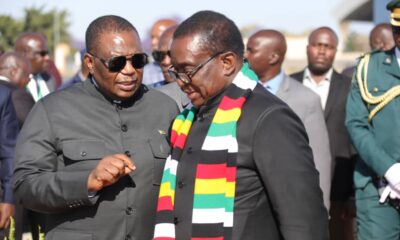

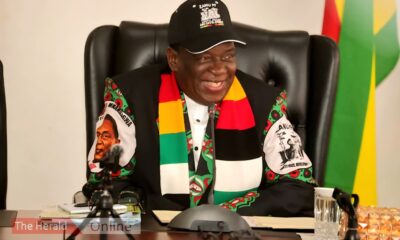



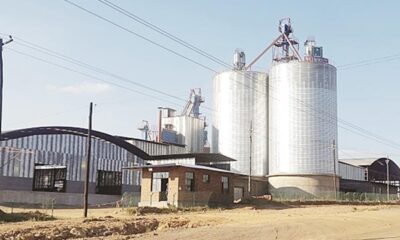

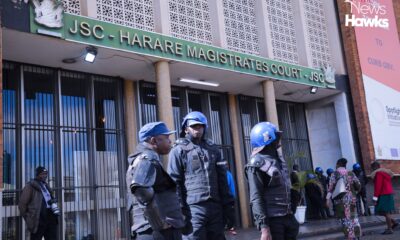









1 Comment